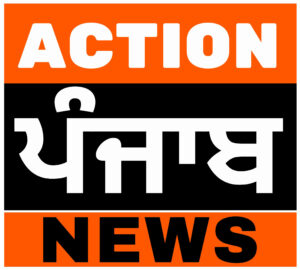ACTION PUNJAB NEWS Desk: IndiGo, India’s leading airline, recently abolished fuel charges and concurrently adjusted its ancillary charges, specifically the seat-selection fees. With immediate effect, select seats are now priced at ₹2000, marking a significant increase in ancillary revenues. These adjustments have been implemented on the booking engine and reflect on the airline’s official website.
IndiGo designates certain seats as “XL,” offering extra legroom or early deplaning privileges for the first row seats. Among the 180 or 186 seats in the A320/A320neo aircraft, which constitute the majority of its fleet, 18 are sold as XL seats. While not all XL seats are priced at ₹2000, rates range between ₹1400 and ₹2000, a revision from the previous range of ₹150 to ₹1500, representing a 33% increase at the upper end.
The seat-selection charges for rows 2 and 3 on the Airbus fleet have decreased from ₹450 to ₹400. However, for rows 11 and 14 to 20 on the A320s, the charges for aisle, window, and even middle seats have risen from ₹250 to ₹400. The pricing adjustments aim to optimise ancillary revenues for the airline.
IndiGo currently holds a substantial 60% market share in India, dominating several routes. Despite its dominant position, the market remains price-sensitive, limiting the airline’s ability to impose exorbitant pricing. With potential competition from the Air India group, especially Air India Express, the industry awaits responses from competitors. Questions arise about whether competitors will follow suit in raising seat selection prices or capitalise on the difference as a marketing strategy.
Akasa Air’s charges range from ₹150 to ₹1500, with the first row and emergency row marketed as “A+.” The airline also offers a business class cabin with a seat price of ₹3500 for the 2×2 seating.
Air India Express aligns its seat selection charges on similar lines, particularly with the induction of the MAX in dual-class configuration.
IndiGo reported an ancillary revenue of ₹1551 crores in the last quarter, encompassing seat selection, meal selection, and other combinations available for sale. As market dynamics evolve, the pricing power of airlines becomes a crucial factor in attracting passengers and optimizing ancillary revenue streams.
Also Read: From Nagara architecture to 5 Mandaps: Key features of Ram Mandir in Ayodhya
Also Read | Boycott Maldives: EaseMyTrip suspends all Maldives flight bookings after remarks against PM Modi
Addressing challenges of seat selection and family seating in Indian aviation
IndiGo, India’s leading airline, grapples with the persistent challenge of seating arrangements for families traveling together. While the airline still provides free seat selection, the recent shift to make web check-in non-mandatory has complicated the process. Families, especially those with children, often face the dilemma of being separated during seat assignments, prompting requests during check-in or post-boarding to ensure they are seated together.
In Western countries where seat selection fees have been in place longer than in India, the issue of families with children being split during seat assignments has been a long-debated concern. Some airlines, such as United, Frontier, and JetBlue, have publicly committed to ensuring that families with children on the same booking (PNR) are seated next to each other. This practice has sparked discussions about whether similar measures should be implemented in the Indian aviation industry.
As air travel becomes increasingly popular among Indian families, the demand for changes in seating policies, particularly for families with children, is expected to grow louder. The challenge lies in finding a balance between the airline’s operational efficiency, revenue generation, and ensuring passenger satisfaction.
Despite the clamor for change, the government has shown reluctance to intervene as the current seat selection charges do not violate Civil Aviation Regulations (CAR). CAR permits charges for seat selection without specifying a cap on the fees. With decreasing oil prices, IndiGo has removed the additional fuel charge, compensating for potential revenue loss by introducing seat selection fees.
In addition to seat selection adjustments, IndiGo has made strategic changes, such as increasing prices for its food offerings while limiting the menu’s offerings. Surprisingly, these changes have not adversely affected the airline’s earnings, profitability, or passenger numbers. IndiGo is set to close 2023 with over 60% market share, marking a significant achievement for the airline.
As IndiGo navigates evolving market dynamics, the challenge remains to strike a balance between meeting customer expectations, adapting to industry practices, and maintaining a competitive edge. The airline’s decisions reflect its ongoing efforts to optimise revenue streams and enhance passenger experience amid the ever-changing landscape of the aviation sector.
Also Read: Bilkis Bano Case: SC quashes remission granted to 11 men convicted in case
Also Read: Cold wave conditions continue to grip Punjab, max temperature drops below normal


